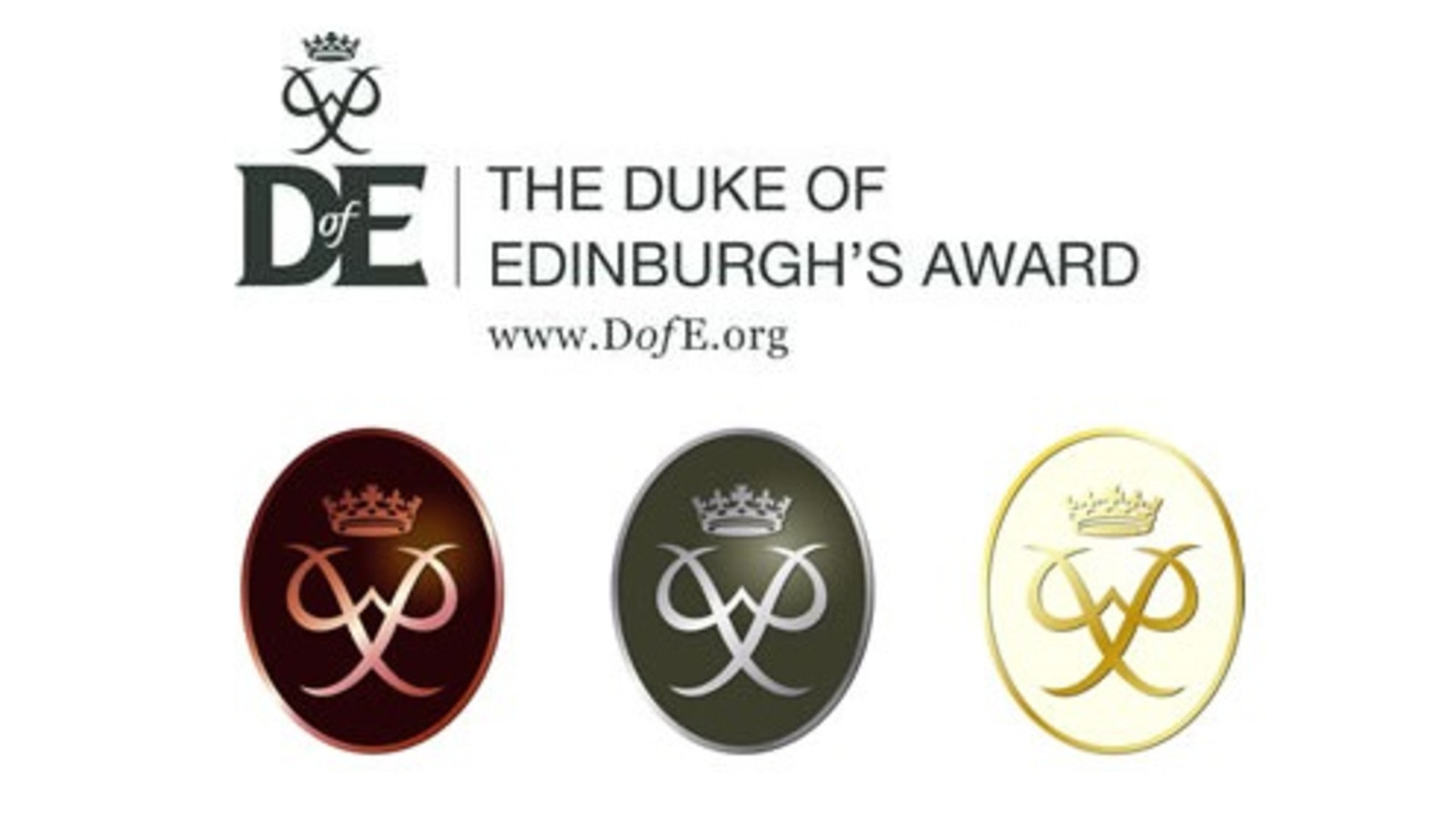
The Duke of Edinburgh’s Award (DofE) is a voluntary, non-competitive programme of activities for anyone aged 14-24. Doing their DofE gives young people the opportunity to experience new activities or develop existing skills.
There are three progressive levels of programmes which, when successfully completed, lead to a bronze, silver or gold award. Young people create their own DofE programme by choosing volunteering, physical and skills activities, going on an expedition and, for their gold only, taking part in a residential activity.
Within Scouting, this links directly to the chief scoutβs platinum, diamond and Queenβs scout awards.
The DofE is delivered through a number of licensed providers, of which The Scout Association is one of the largest in the country.
The requirements for the Chief Scoutβs Platinum and Diamond Awards, and the Queenβs Scout Award are linked to the Bronze, Silver and Gold DofE Awards, and the DofE programme should play an integral part in the Programme for those in the Explorer Scout and Scout Network Sections.
There are three levels; Bronze for those aged 14 and over, Silver for those 15 and over and Gold for those 16 and over. There is the option to permit young people to start their Bronze Award a few months before their 14th birthday if they are working with a group who are mainly 14 or over.
The DofE Manager of the Operating Authority (The Scout Association) must approve this in writing prior to the young person registering.
The upper age for completion of all levels is their 25th birthday.
Young people can start on whichever programme best suits them (so long as they meet the minimum age requirements), however, if they progress through the levels, some reductions in time requirements are given for higher levels.
Each of the DofE programmes is divided into four sections: Volunteering, Expeditions, Skills and Physical. For the Gold there is an additional section – the Residential.
When choosing which activities to carry out within each section of the programme, the level should be considered along with the physical, intellectual, social and spiritual development of the young person to ensure that it is suitable. Prior to starting the young person should make a plan and set personal goals, this make sure that all activities are acceptable and that the young person has the right support throughout the process.
Volunteering
The aim of this section is to encourage volunteering, and is based on the belief that members of the community have a responsibility to each other. Young people should receive briefing and training in appropriate skills, and have some knowledge of the needs of those whom they are assisting.
Although the specific benefits depend on the choice of activity, the volunteering section should offer the participants the opportunity to:
ο give personal commitment
ο appreciate the needs of others and contribute to
their well-being
ο trust and be trusted
ο understand personal strengths and weaknesses
ο increase self-esteem
ο overcome prejudice and fears
ο generate positive community action
ο care for the environment
ο accept responsibility
If the form of volunteering requires attendance at a training course or the gaining of a qualification, then this should be completed, however this can
not take up more that ΒΌ of the total required time. The volunteering must cover the minimum number of months for each level of DofE and all forms of volunteering require some form of practical involvement (at least ΒΎ of the time required).
Expeditions
The aim of the expeditions section is to encourage a spirit of adventure and discovery. All ventures involve self-reliant journeying in the countryside or
on water, conceived with an aim and undertaken on foot, by cycle, on horseback, or in canoes or boats by participantsβ own physical effort and
without motorised assistance. Prior to the qualifying venture Participants must undertake training (the syllabus is outlined in the Welcome Pack, Handbook and on the website) and practice journey(s). The duration of the venture varies depending on the level of the programme. At each
level a minimum number of hours per day must be spent doing planned activity, this should be a combination of journeying and exploring.
The expeditions section should provide opportunities to:
ο demonstrate enterprise
ο work as a member of a team
ο respond to a challenge
ο develop self-reliance
ο develop leadership skills
ο recognise the needs and strengths of others
ο make decisions and accept the consequences
ο plan and execute a task
ο reflect on personal performance
ο enjoy and appreciate the countryside
All expeditions must be carried out in accordance with Policy, Organisation and Rules.
Skills
The aim of this section is to encourage the discovery and development of practical and social skills and personal interests. It should encourage
young people to pursue activities within a wide range of practical, cultural and social environments and develop social, life and vocational skills.
The skills section should offer participants the opportunity to:
ο develop practical and social skills
ο meet new people
ο Organise and manage time
ο discover how to research information
ο set and respond to challenge
ο work with others
ο enjoy sharing
ο discover new talents
Involvement in this section is measured in months, with an expectation of an average involvement of at least one hour per week. There is flexibility as to how the hours are spent within the total time span as long as there is regular involvement throughout. The list of suggested activities on the DofE website is not exhaustive. The programmes are for guidance only and are
not intended to be a rigid syllabus.
Physical
The aim of this section is to encourage participation and improvement in a physical activity. The physical section should provide opportunities to:
ο enjoy keeping fit
ο improve fitness
ο discover new abilities
ο raise self-esteem
ο extend personal goals
ο respond to a challenge
ο derive a sense of achievement
Performance is measured by participation and improvement over the minimum period of months for each particular award. Participants should
average at least an hour a week over the total period of involvement.
Each participant should negotiate their programme with the mentor/instructor/coach and then agree the content and appropriate targets or goals.
Residential (an additional requirement at Gold level)
The aim of this section is to broaden young peoples’ experience through involvement with others in a residential setting. The residential project should give the young people the opportunity to:
ο meet new people
ο experience an unfamiliar environment
ο build new relationships and show concern for others
ο work as part of a team towards shared goals
ο accept responsibility for self and others
ο develop communication skills
ο show initiative
ο enjoy living and working with others
The project must last at least 5 days and 4 nights and only a small minority of those taking part should be previously known to the participants.
Opportunities enabling young people to fulfill these conditions are varied and include Outward Bound courses and Youth Leadership training
courses, as well as conservation work with The National Trust or Canal Camps etc. Residential opportunities are often advertised on the DofE
website and magazine, or could be found within Scouting. Further information may be found in the DofE Handbook.
Note β Attendance at a World Scout Jamboree event or similar as a member of a unit is not acceptable for the residential section of the DofE, however attendance as a member of the International Service Team is acceptable.
Methods
There are some differences in the methods of The Scout Association’s Programme and that of the DofE, so care should be taken to see that all the
requirements of each are met. It is essential that Scout participants keep within the DofEβs conditions and that they do not assume that only
Scout criteria apply.
How to Enter
Entry into the DofE is by the purchase of a Welcome Pack from your County Adviser for DofE (England) – Please speak to your explorer leader. When this is issued the date is recorded in the record book. Activities followed
prior to this date may count if undertaken during the preceding three months (so long as the minimum age requirements are met). For more
details on this, refer to the DofE Handbook. It is important to note that no qualifications gained before enrollment to the DofE are permitted to
count.
Completion
Once DofE programmes have been completed, the record books must be checked, before the young person can be presented with their pin
badge and certificate at a local presentation. Cloth badges for the uniform are obtained from District Badge Secretaries, these cloth badges can be worn on the Scout uniform. At Bronze / Silver level on completion of the
DofE, the record book should be signed by the the County Adviser
At Gold level once the requirements of the DofE have been fulfilled, the young person must fill out Gold Award notification forms, available
from http://www.DofE.org . These must then be submitted with the record book to the County Adviser (England) for checking before being sent to the DofE Manager for The Scout Association for confirmation of the Award. These are then sent to the County Commissioner for a local presentation, whilst the record books are returned to the County Adviser (England);
At a later date the young person will be invited by The Duke of Edinburgh’s Award Head Office to a national presentation where their certificate will be
presented to them.
For more information please complete the form below

